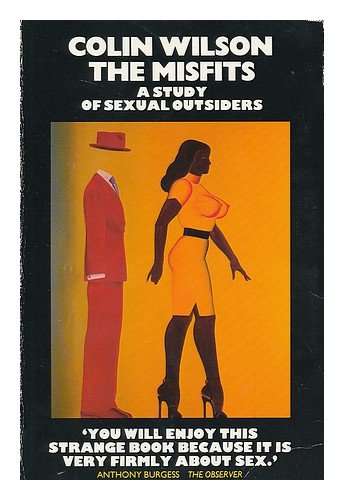
The Misfits: A Study of Sexual Outsiders - Colin Wilson
Check my rate
| Main centres: | 1-3 business days |
| Regional areas: | 3-4 business days |
| Remote areas: | 3-5 business days |

| Main centres: | 1-3 business days |
| Regional areas: | 3-4 business days |
| Remote areas: | 3-5 business days |
Published by Grafton, 1989, softcover, condition: very good.
True p****graphy began in the mid-1700s with Samuel Richardson's voyeuristic novels Pamela and Clarissa , in Wilson's odd estimate. The author of The Outsider , etc., further maintains that sexual perversions such as those catalogued by Richard von Krafft-Ebing scarcely existed before 1740; only after Romanticism unleashed modern imaginations did sexual deviance flourish, he asserts. The "sexual outsiders" whose deliciously naughty doings are chronicled in this thought-provoking, entertaining mishmash are men who used libido as rocket fuel to escape the body's confines and soar toward higher consciousness. They include Swinburne and T. E. Lawrence, both of whom liked to be flogged; Yukio Mishima, trapped inside his womb-like subjective world; Byron, titillated by an incestuous affair with his half-sister; egoist Henry Miller; and guilt-ridden, promiscuous homosexual Ludwig Wittgenstein. Wilson's starting-point is Charlotte Bach (born Carl Hajdu), a Hungarian male transvestite of whose farfetched theory of eros and evolution the author makes too much as he hammers home his thesis that sex resides as much in the heart and the imagination as in the loins.